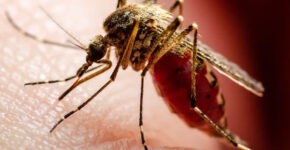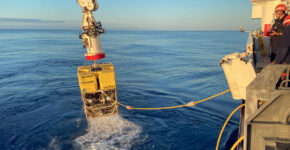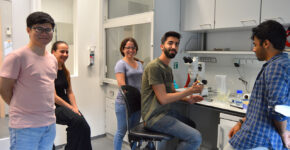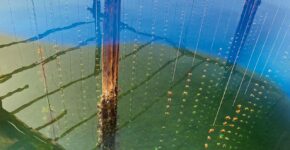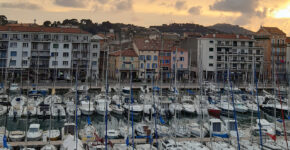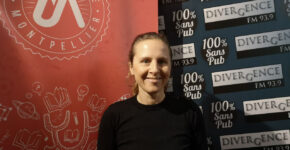Content type: Page
L’université de Montpellier a remporté un appel d’offre publié par le Programme des Nations Unies pour l’Environnement (PNUE) en 2021 et a accueilli de 2022 à 2025 l’unité d’appui technique qui a coordonne une évaluation soutenue par la Plateforme intergouvernementale scientifique et politique sur la biodiversité et les services écosystémiques (IPBES). Au sein de la Direction des Programmes Structurants de l’Université de Montpellier (DPS), qui assure la coordination des programmes emblématiques de l’établissement, le projet IPBES était rattaché au service d’appui à l’international et à l’attractivité des programmes structurants (SAIA). L'évaluation des changements transformateurs L’évaluation vise à déterminer et comprendre les facteurs dans la société humaine, au niveau tant individuel que collectif et de l’échelle locale à l’échelle mondiale, qui peuvent être mobilisés pour amener des changements transformateurs afin d’assurer la conservation, la restauration et l’utilisation durable de la biodiversité, en tenant compte des facteurs sociaux et économiques dans le contexte des Objectifs de Développement Durable. OBJECTIFS
L’objectif général de l’IPBES est de renforcer l’interface science-politique pour la biodiversité et les services écosystémiques en vue de la conservation et de l’utilisation durable de la biodiversité, du bienêtre humain à long terme et du développement durable. L’évaluation s’intitule “Évaluation thématique des causes profondes de l’érosion de la biodiversité, des déterminants des changements transformateurs et des solutions pour réaliser la Vision 2050 pour la biodiversité”. Elle s’inscrit dans la Vision 2050 de la Convention sur la diversité biologique et de son cadre mondial de Kunming-Montréal pour la biodiversité adopté en décembre 2022 par ses Etats parties. L’évaluation mondiale de la biodiversité et des services écosystémiques de la Plateforme (2019) a conclu qu’il existait des voies possibles pour concrétiser la Vision 2050 pour la biodiversité parallèlement aux principaux objectifs de développement humain. Toutefois, ces voies exigent des changements fondamentaux au niveau des paradigmes du développement et des dynamiques socio-écologiques, ce qui entraîne des transformations de la société, en prenant en compte les inégalités et la gouvernance, en utilisant les terres, l’eau, l’énergie et les matériaux de façon bien plus durable ainsi qu’en repensant et modifiant de manière appropriée les habitudes de consommation, les systèmes alimentaires et les chaînes de valeur mondiales. L’évaluation éclaire les décideurs sur les options pour mettre en œuvre des changements transformateurs en vue de réaliser la Vision 2050 pour la biodiversité et les objectifs de développement durable. L’évaluation éclaire également des politiques infranationales, nationales, régionales et mondiales concernant la préservation et l’utilisation durable de la biodiversité et des écosystèmes, des ressources naturelles et des contributions de la nature aux populations. Cibles : les gouvernements ; les organes directeurs d’accords multilatéraux sur l’environnement ; les décideurs au sein des cadres politiques mondiaux, les gouvernements infranationaux et les autorités locales ; les scientifiques ; les systèmes d’éducation et les médias ; le secteur privé et la société civile, y compris les Peuples Autochtones et les communautés locales, les jeunes, les femmes et les organisations non gouvernementales. L’évaluation prend en compte - à différentes échelles dans le monde - les dimensions psychologiques, comportementales, sociales, culturelles, économiques, politiques, de gouvernance, institutionnelles, démographiques, techniques et technologiques, qui ont toutes un impact sur la biodiversité. Qu’est-ce que les changements transformateurs ? Aux fins de l’évaluation et dans la lignée des précédents travaux de l’IPBES approuvés par la Plénière de cette dernière, les changements transformateurs sont définis comme une réorganisation en profondeur à l’échelle du système de l’ensemble des facteurs technologiques, économiques et sociaux, y compris des paradigmes, des objectifs et des valeurs. Le changement transformateur délibéré pour un monde juste et durable modifie les vues, les structures et les pratiques de manière à traiter les causes sous-jacentes de la perte de biodiversité et du déclin de la nature. Chapitres de l'évaluation
L’évaluation sur les changements transformateurs s’articule en cinq chapitres rédigés par cinq sous-groupes d’auteurs. Chaque chapitre a des objectifs bien précis. Chapitre 1 : Changements transformateurs et un monde durable Définit les changements transformateurs et explique en quoi ils sont nécessaires. Exploration de tous les acteurs qui influent sur la dégradation de la biodiversité et l’impactent. Réflexion sur la manière dont le cadre spatio-temporel complique ou facilite les changements transformateurs. Cadre et feuille de route pour l’évaluation. Chapitre 2 : Visions d’un monde durable pour la nature et les populations Réflexion sur les défis que peuvent présenter les changements transformateurs, en s’appuyant sur la science et sur la diversité des normes et des valeurs dans le monde. Présentation de différentes valeurs et visions pour un monde durable, ainsi que des scénarios qui les illustrent. Chapitre 3 : Comment interviennent les changements transformateurs Présentation de la manière dont les changements transformateurs interviennent avec un focus sur les changements qui peuvent être intentionnellement favorisés, accélérés et calibrés afin de parvenir à un monde durable. Compréhension de ces changements délibérés pour mettre en lumière les moyens de générer et nourrir ces changements. Chapitre 4 : Surmonter les défis liés aux changements transformateurs en vue d’un monde durable Evaluation des obstacles qui entravent les changements transformateurs. Présentation de pistes pour surmonter ces obstacles afin de promouvoir les visions mondiales, locales et régionales d’un monde durable pour la nature et les populations. Chapitre 5 : Réaliser un monde durable pour la nature et les populations : stratégies transformatrices, mesures et rôle de chacun Evaluation des stratégies concernant les institutions, les instruments, l’évaluation et les voies pour réaliser les visions d’un monde durable présentées par les chapitres précédents. Elaboration de voies souhaitables et des moyens d’y parvenir incluant des options et actions à court terme, moyen et long terme. Composition de l'équipe 3 co-présidents : Lucas Garibaldi (Argentine), Karen O’Brien (Norvège), Arun Agrawal (Etats-Unis) 15 auteurs coordinateurs principaux 61 auteurs principaux 10 éditeurs-réviseurs 12 jeunes chercheurs 101 auteurs au total Comité de gestion : Markus Fischer, Özden Görücü, Floyd Homer, Madhav Karki, Asia Mohamed, David Obura. Unité d’appui technique : Laurence Perianin (responsable), Camille Guibal (chargée de programme), Anouk Renaud (assistante de programme) Chronologie
L’évaluation s’est déroulée sur trois ans, de 2022 à 2024 avec une phase d’approbation de l’évaluation et de sélection de l’équipe en 2021 et une phase de clôture du projet de janvier à juillet 2025. L’évaluation a été adoptée lors de la 11e Plénière de l’IPBES qui s’est tenue à Windhoek en Namibie en décembre 2024. 2021 Juin : Approbation de la réalisation de l’évaluation des changements transformateurs par la 8ème Plénière de l’IPBES (décision IPBES-8/1). 26 août : Ouverture des nominations d’experts par les gouvernements et les parties prenantes. 2022 Juillet : 9e réunion Plénière de l’IPBES à Bonn, Allemagne – Point d’étape sur l’évaluation. Janvier : Nomination par l’IPBES des coprésidents, des auteurs coordinateurs principaux, des auteurs principaux et des éditeurs-réviseurs de l’évaluation. Avril : Création de l’unité d’appui technique de l’évaluation au sein de l’université de Montpellier. 9 au 13 Mai : Première réunion des auteurs à Montpellier avec toute l’équipe de l’évaluation : les coprésidents, les auteurs coordinateurs, les auteurs principaux, les éditeurs-réviseurs, les membres de l’unité d’appui technique et le comité de gestion de l’évaluation. 2023 3 février au 17 mars : Première revue externe (6 semaines) – projets de chapitres mis à disposition pour examen par le public sur le site internet de l’IPBES. 22 au 26 mai : Deuxième réunion des auteurs avec l’équipe de l’évaluation au grand complet, sur le campus CATIE au Costa Rica. 27 au 29 mai : Première réunion de rédaction du résumé à l’intention des décideurs (summary for policy makers ou SPM) avec le comité de gestion de l’évaluation et les auteurs coordinateurs principaux (Campus CATIE – Turrialba, Costa Rica). 30 mai : webinaire de renforcement des capacités réalisé en direct du campus CATIE et retransmis à l’UM à destination de la communauté scientifique. 22 août au 2 septembre : 10ème réunion plénière de l’IPBES à Bonn, Allemagne – Point d’étape sur l’évaluation. 27 au 29 septembre : Seconde réunion de rédaction du résumé à l’intention des décideurs (Trondheim, Norvège). 4 décembre 2023 au 2 février 2024 : Deuxième revue externe (8 semaines) des projets de chapitres et du projet de résumé à l’intention des décideurs mis à disposition sur le site internet de l’IPBES pour examen par le public. 2024 19 au 23 février : Troisième réunion des auteurs à Montpellier, France. 18, 25 et 26 février : Troisième réunion de rédaction du résumé à l’intention des décideurs (Montpellier, France). 24 au 26 avril : Quatrième réunion de rédaction du résumé à l’intention des décideurs (Montpellier, France). 1er juillet au 11 août : Revue additionnelle du projet des chapitres et du résumé à l’intention des décideurs par les gouvernements. 15 octobre au 26 novembre : Revue externe finale (6 semaines) – version finale du projet de résumé à l’intention des décideurs et des chapitres mis à disposition pour examen par les gouvernements. 10 au 16 décembre : Examen par la 11ème plénière de l’IPBES du résumé à l’intention des décideurs pour négociation/approbation et présentation des chapitres pour acceptation. 7 avril : Présentation du rapport adopté lors d’un évènement à l’Université de Montpellier. Post-approbation de l’évaluation : activités d’édition et de communication suite à l’adoption de l’évaluation. Publication du rapport de l'IPBES Planète en péril : le rapport de l'IPBES révèle des options pour réaliser le changement transformateur nécessaire de toute urgence pour mettre fin à l'effondrement de la biodiversité. Dans ce rapport, les experts, qui ont examiné plus de 7 000 sources de connaissance et près de 400 études de cas de potentiel transformateur présentent des solutions pour le monde de demain en trois phases : Les changements transformateurs sont urgents, nécessaires et difficiles mais possibles. Les stratégies et actions associées pour des changements transformateurs : le rapport présente cinq stratégies interdépendantes pour atteindre la vision 2050 pour la Biodiversité. Comment favoriser les changements transformateurs : des rôles pour tous. L'accent est mis sur les causes sous-jacentes de la crise de la biodiversité et les options pour un monde juste et durable. Agir immédiatement pourrait générer 10 000 milliards de dollars en valeur. Courriel Téléchargez le communiqué de presse de l'IPBESTélécharger Consultez le résumé du rapport à l'intention des décideurs politiquesTélécharger

